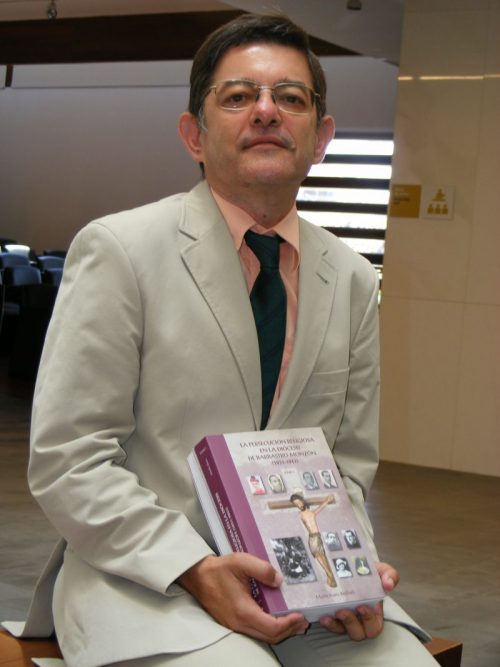Martín Ibarra is especially committed to the memory of the Spanish martyrs of the 20th century. A historian specializing in ancient history, specifically women in antiquity, in 1998 he began to work as director of the archives of the sanctuary of Torreciudad and in the Mariological Institute. In 2004 the Bishop of Barbastro-Monzon asked him to help in the cause of the martyrs in the Historical Commission of the diocese.
"As a result of this research I met many people. I gathered a lot of documentation that I published in a two-volume book about the religious persecution in the diocese of Barbastro-Monzon. It is a book that begins in 1931 and ends in 1941. It studies the religious persecution in Spain explaining the causes of the persecution and the consequences as a unique phenomenon."he points out. As a result of this publication he came to the conclusion that on the surface we know a lot about the martyrs but in reality we know very little. "They ask me five or six questions about each of the martyrs and I don't even know how to answer them. I don't even have a photo of many of them. In antiquity there were many martyrs, but no one collected information about them. As a result, as the years and centuries went by, people began to invent stories."he explains.
To avoid similar situations with the martyrs of the 20th and 21st centuries, he decided to collect as much information as possible about them. "I got together with several people who are friends of the martyrs and we took forward the Martyrs' Days of Barbastro. I had the support of the Claretians, who have in Barbastro the Museum of the Claretian Martyrs, a unique museum. They have a lot of relics, objects that belonged to the martyrs. I have counted on that support and then I have been gathering support from other people, mostly lay people, but also from priests and religious institutions.".
As a result of this support, the Jornadas Martiriales de Barbastro was born, the first edition of which was held in 2013. The conference is usually attended by university professors, priests, religious, relatives of the martyrs and lay people interested in the martyrs. In addition to the round tables, they organize concerts of martyr music, book presentations, film screenings and short film contests.
"On the one hand, we have managed to make this conference a point of reference throughout Spain, even though they are humble conferences. On the other hand, we have achieved that for the first time there is a clear diffusion of this issue outside the processes of beatification of martyrdom."he said. Martin regrets that once the martyrs were beatified, they were never spoken of again, "and that does not make sense. We have to talk a lot before and, above all, after they are beatified. We have to give a lot of information about them"..
This is how he and the other members of the Historical Commission of the diocese came up with the idea of launching the short film contest on martyrs in the context of the conference. "The idea is very simple. If there is a group of young people from parishes, schools, high schools, colleges, universities..., who decide to make a short film about a martyr, in the end they will end up being interested in knowing who that person was. They will ask for documentation, they will investigate ..... In the case of the towns, if they do this in the place where the martyr was, they will end up collecting a lot of documentation that we in the bishoprics do not have. It is the way to save a lot of information that otherwise could be lost. Besides, in this way, the young people who participate in a short film are filled with the good values that the martyrs had.".








